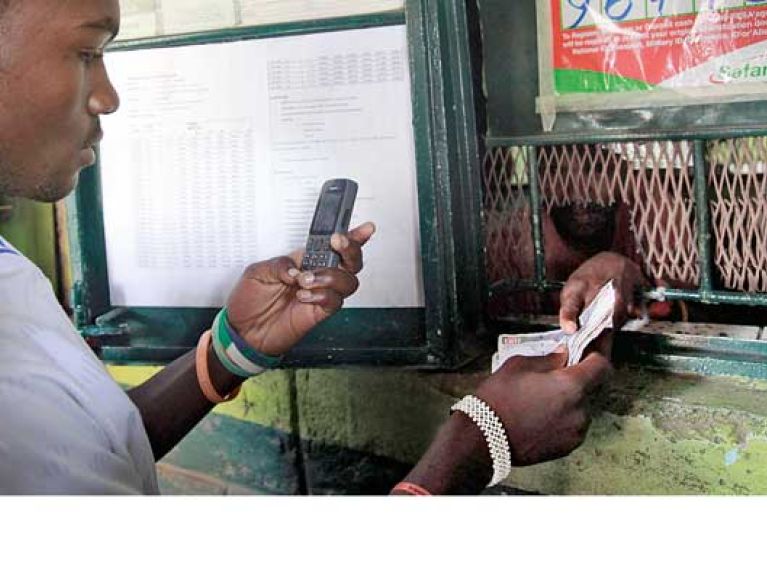“In Africa the glass is half full”
Africa expert and World Bank economist Wolfgang Fengler on the current state of Africa’s industrialisation.

Wolfgang Fengler believes in Africa. While some experts view the continent’s recent economic boom as little more than another flash in the pan, the 42-year-old Africa expert – and until the middle of this year Leading Economist at the World Bank’s Nairobi office – believes there is reason for hope. He is particularly encouraged by the macroecono¬mic data, including declining inflation, less debt and an economic growth rate that has risen on average to 5 per cent – things, he says, that seemed beyond the realm of possibility just 20 years ago.
On balance, Fengler even takes a positive view of Africa’s population growth, despite the explosive potential for social unrest. According to United Nations statistics, Africa has the highest population growth rate of all continents and is likely to account for approximately 40 per cent of global population growth by 2030. Fengler justifies his optimism by pointing out that Africa’s currently still very high population growth (from 1.1 billion today to 2.2 billion in 2050) is likely to weaken as urbanisation continues, and that most Africans will then be of working age for a longer period.
In particular, he believes that per capita gross domestic product in many of the continent’s countries will rise to more than 1,000 dollars by 2025, making them middle-income countries by definition. But even Fengler urges caution in the face of the problems this may entail. There is a danger, he says, that production costs in Africa will be too high to make it an attractive low-wage region and that African countries will be less innovative than competitors like Indonesia.
In East Africa, Fengler sees potential for developing light industry and a sizeable services sector – though both are still in their infancy. He is encouraged by the huge growth of the mobile telephony sector and Kenya’s highly successful M-Pesa system, which many Kenyans now use to make mobile money transfers. M-Pesa has since reached the country’s most remote villages. “The social and economic impact is considerable,” says Fengler in summary. The system also strengthens the position of women, he explains, because men have less ready access to the money.
But Fengler warns against being too optimistic. In an essay, he and his co-author put forward a host of reasons – like many African countries’ continuing dependence on single commodity exports – why the boom’s success may be unlikely to endure. Still, he believes that Africa can make the political changes needed to ensure stronger economic growth – which leads him to conclude that in Africa the glass is half full. ▪
Wolfgang Drechsler
For the past 14 years, Dr. Wolfgang Fengler, a German citizen, has been working in the United States at the Washington, D.C.-based World Bank. He began his career at the organization’s headquarters, then moved to Indonesia to assume the position of Senior Economist before relocating to Africa. Since August 2013, he has been Country Sector Leader for the Western Balkans at the World Bank’s Vienna office. Fengler is the author of the book Realising the Kenyan Dream, which is published by the Nation Media Group. One way to contact him is via his twitter account: @wolfgangfengler.

